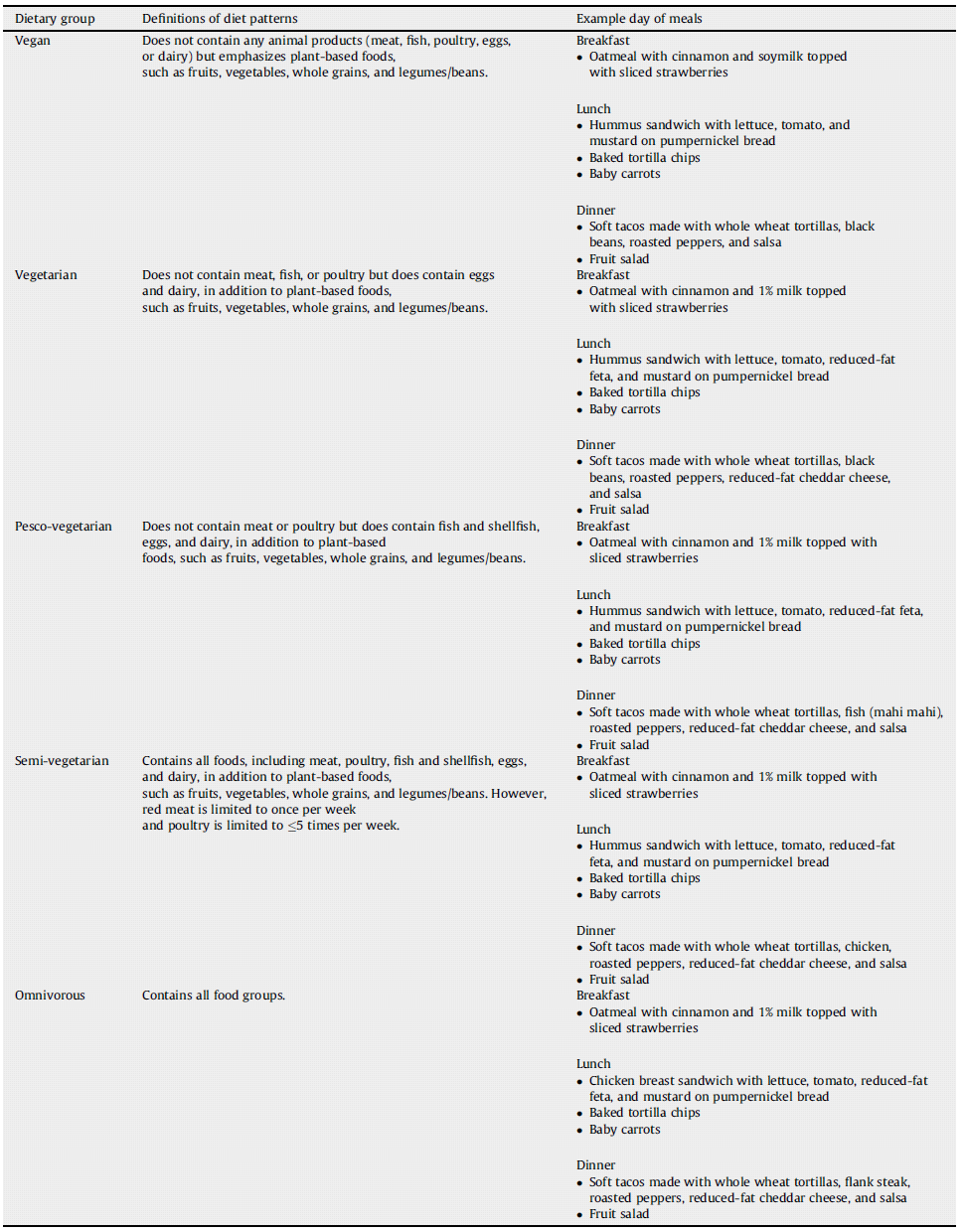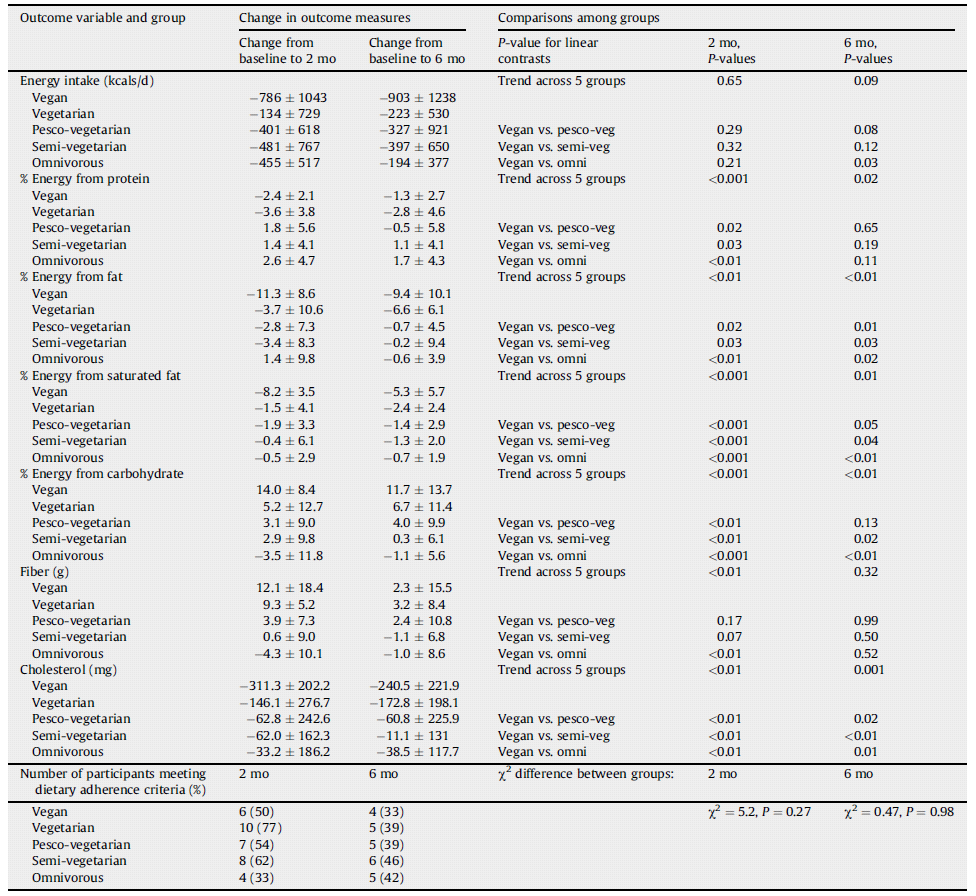I’m not vegan but the “Anti-Vegan Because B12” argument is lame. B12 insufficiency is largely due to malabsorption, not steak deficiency.
Also, oysters SMOKE meat for B12. Seriously, over a full day’s supply in one medium-sized oyster. Can meat do that?
Many people take supps, but somehow anti-vegans think B12 invalidates veganism. It doesn’t. Also, 1) tons of B12 in oysters; 2) nori B12 works in humans and rats; and 3) mushrooms still haven’t been ruled out as a legit source. Whether you consider these foods vegan or not is a different story. Many non-vegans are B12-deficient, too -> all the steak in the world won’t help if you can’t absorb it.
I’m not undermining the severity of B12 deficiency, just noting some basic facts.
My bias: things like T2DM, obesity, and even some cancers and mood disorders are due primarily to circadian arrhythmia, sleep, & LIGHT… and secondarily to diet.
When it comes to diet, mostly plants plus some animal is optimal for humans in our modern #context, regardless of which Ice-Age Paleo-Fairy Tale™ you subscribe to. Things like sleep, LIGHT, and activity, among others, seem way more important than debating historical [theoretical] dietary minutiae.
Lastly, this particular debate isn’t “vegan vs. keto.” THEY’RE NOT MUTUALLY EXCLUSIVE. “Eco-Atkins” is a thing. Animals provide a convenient source of LC protein, but it can be done without them.
I thought long about where to set the goal post for this article (and will try not to shift it haha). Paleo-bro’s lash out hard against veganism, claiming it will literally kill you.
Goal post: veganism won’t literally kill you.
Dr. Garth Davis, author of Proteinaholic, is a vegan physician who has successfully treated many patients with a plant-based diet (not vegan to my understanding, but low animal intake). Imo, Dr. Davis is one of the rare third breed of vegan: health-based, ethical, but NOT a zealous fanatic. I requested some of his favorite intervention studies and he kindly obliged.
Here is a brief overview of the studies he provided in chronological order, and my comments.
Exhibit A. Vegetarian diet in mild hypertension: a randomised controlled trial (Margetts et al., 1986)
Context: n=58, omnivorous vs. lacto-ovo-vegetarian for 6 weeks, good study design & intervention.
Despite modest weight gain, it worked. My only critique is lacto-ovo-vegetarian =/= vegan; eggs and dairy are animal super foods, very nutrient-dense. Not much information about the baseline diets is reported, so it may have simply been a healthier diet overall. But avoiding red meat for 6 weeks didn’t literally kill them. And reduced blood pressure despite modest weight gain is rare and bodes well.
Exhibit B. Intensive lifestyle changes may affect the progression of prostate cancer (Ornish, Barnard, et al., 2005)
Context: fully vegan + comprehensive lifestyle intervention for 1 year.
“Experimental group patients were prescribed an intensive lifestyle program that included a vegan diet supplemented with soy (1 daily serving of tofu plus 58 gm of a fortified soy protein powdered beverage), fish oil (3 gm daily), vitamin E (400 IU daily), selenium (200 mcg daily) and vitamin C (2 gm daily), moderate aerobic exercise (walking 30 minutes 6 days weekly), stress management techniques (gentle yoga based stretching, breathing, meditation, imagery and progressive relaxation for a total of 60 minutes daily) and participation in a 1-hour support group once weekly to enhance adherence to the intervention. The diet was predominantly fruits, vegetables, whole grains, legumes and soy products, low in simple carbohydrates and with approximately 10% of calories from fat. The diet is intensive but palatable and practical. In earlier studies most patients were able to adhere to this diet for at least 5 years.”
5 years!
My only critique is that a comprehensive lifestyle intervention is so much more than simply vegan. In any case, it worked. And prostate cancer is very serious. And a WHOLE YEAR of zero red meat didn’t literally kill them.
Exhibit C. A two-year randomized weight loss trial comparing a vegan to a more moderate low-fat diet (Turner-McGrievy, Barnard, and Scialli, 2007)
Context: 2 years! ad lib. ad lib. ad lib.
“The low-fat vegan diet consisted of fruits, vegetables, legumes, and grains. Animal products were proscribed, and the use of unrefined foods was encouraged. Participants were asked to limit high-fat plant foods, such as avocados, nuts, and seeds. The NCEP diet followed the former NCEP Step II guidelines, which are similar to the current NCEP Therapeutic Lifestyle Changes diet. There was no restriction on energy intake for either diet group, and participants were encouraged to eat to satiety.”
Interestingly, they showed that those who received regular counseling achieved greater weight loss regardless of diet, but those who received regular counseling and were assigned to vegan lost the most weight.
And TWO WHOLE YEARS of zero red meat sure didn’t literally kill them…
Exhibit D. A low fat vegan diet and a conventional diabetes diet in the treatment of T2DM: a randomized, controlled, 74-week clinical trial (Barnard et al., 2009)
Context: 74 weeks! (fyi that’s longer than a year)
Comments: this study demonstrated non-inferiority. Both diets worked equally well for long-term weight loss. Absolute levels of HbA1c were similarly reduced overall, but vegans were able to discontinue more anti-diabetic meds (that’s basically the definition of a “healthy” diet).
And no fatalities, literally, with 74 weeks of no red meat.
Exhibit E. Effect of a 21-day Daniel Fast on metabolic and CVD risk factors (Bloomer et al., 2010)
Context: Daniel Fast = ad lib vegan (no meat, not no food [like real fasting]).
Comments: potentially meaningful changes in blood pressure (similar to Exhibit A), if it works in hypertensive patients. Reduced inflammation. And the spontaneous reduction in ad lib food intake is great… had the study lasted longer than 3 weeks, this may have resulted in weight loss.
Exhibit F. Restriction of meat, fish, and poultry in omnivores improves mood: a pilot RCT (Beezhold and Johnston, 2012)
Context: omnivore vs. pescoovovegetarian vs. lactovegetarian for two weeks for 2 weeks.
Comments: No #vegan interventions. Interestingly, mood improved only in the lactovegetarians (not pescoovovegetarians), but it was modest and only significant in 2 out of 11 assessments of mood. So, dairy is cool, and literally no fatalities in either of the no red meat groups.
Exhibit G. Comparative effective of plant-based diets for weight loss: a RCT of five different diets (Turner-McGrievy et al., 2015)
Context: this is one of my favorites. Vegan vs. lacto-ovo-vegetarian vs. lacto-ovo-pesco-vegetarian vs. semi-vegetarian vs. omnivorous diets for 6 months.
Comment: vegans lost the most weight, but lacto-ovo-vegetarians were a close second (see comments from Exhibit A).
-excellent description of different dietary nuances:
-actual changes:
and weight loss:
Exhibit H. Association of animal and protein intake with all-cause and cause-specific mortality (Mingyang, Hu, Willett, Longo, et al., 2015)
This isn’t one of the studies Dr. Garth sent me, but demonstrated an important point imo.
Animal protein is bad, but “these associations were confined to participants with at least 1 unhealthy lifestyle factor based on smoking, heavy alcohol intake, overweight or obesity, and physical inactivity, but not evident among those without any of these risk factors.”
***this is the straw that usually breaks the back of many studies. It’s very difficult to control for all the bad things unhealthy people do (partly bc we don’t know all of the relevant ones), but when we do, spurious correlations evaporate.
[insert Michael Pollan quote here]
[followed by LC addendum]
If you’re interested in setting up consultations, email me: drlagakos@gmail.com.
Check out my Patreon campaign!
Affiliate links: It’s 2018, join Binance and get some cryptoassets ordownload Honeyminer and get some Bitcoins for free!
Still looking for a pair of hot blue blockers? Carbonshade and TrueDark are offering 15% off with the coupon code LAGAKOS and Spectra479 is offering 15% off HERE. If you have no idea what I’m talking about, read this then this.
20% off some delish stocks and broths from Kettle and Fire HERE.
If you want the benefits of ‘shrooms but don’t like eating them, Real Mushrooms makes great extracts. 10% off with coupon code LAGAKOS. I recommend Lion’s Mane for the brain and Reishi for everything else.
Join Earn.com with this link.



